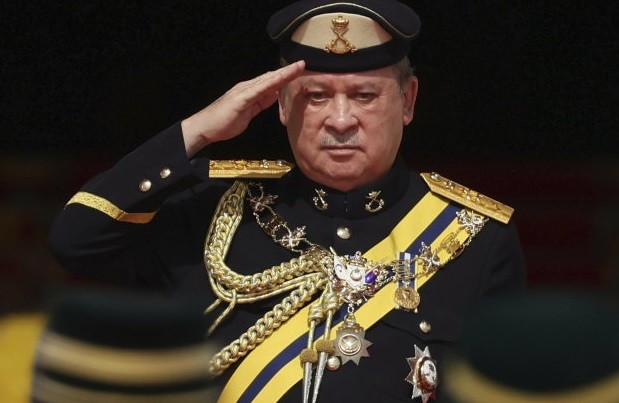31/01/2024
31/01/2024

KUALA LUMPUR, Malaysia, Jan 31: In a ceremonial ceremony on Wednesday, Sultan Ibrahim, the wealthy and outspoken ruler of Malaysia's southern Johor state, officially assumed the position of the country's new king. Malaysia's unique rotational monarchy system, in which the heads of the nation's nine royal families take turns to serve as king for a five-year term, has been a defining feature of the country's constitutional monarchy.
While the monarchy traditionally plays a largely ceremonial role, in recent years have increased its influence due to prolonged political instability. During such times, the king has wielded rarely used discretionary powers. Notably, nine of Malaysia's 13 states are led by traditional ethnic Malay rulers, commonly known as sultans, making it one of the world's largest monarchy systems.
Established after Malaysia gained independence from Britain, the constitutional monarchy operates on a rotational basis, with the nine rulers electing one among themselves to be the king every five years through a secret ballot. Originally determined by seniority, the rotation order was modified after all royal families completed a term, and they now take turns based on the initial order.
Sultan Ibrahim, aged 65, hailing from Johor, a state with a sultanate dating back to the 16th century, brings his unique perspectives to the monarchy. Known for his views on governance, he has expressed a positive relationship with the prime minister. The sultan boasts a significant collection of luxury cars and motorbikes and holds diverse business interests, including a joint venture with Chinese property developer Country Garden for the $100-billion Forest City project in Johor.
Publicly advocating for a special economic zone between Johor and neighboring Singapore to strengthen ties, Sultan Ibrahim has also expressed intentions to revive a stalled high-speed rail project between Malaysia and the city-state. Johor, being the only sultanate allowed to maintain its private army, is a distinct feature rooted in the historic agreement for the state to join the Federation of Malaya before Malaysia's independence in 1957.
While the monarch primarily serves a ceremonial role and acts as the custodian of Islam in the Muslim-majority country, the federal constitution mandates the king to act upon the prime minister's and cabinet's advice, with few exceptions. The king also holds the power to appoint a prime minister, a role that was unused until 2020, as the premier was traditionally elected.
Recent political shocks have compelled the monarchy to play a more significant role, particularly during the reign of Sultan Ibrahim's predecessor, Al-Sultan Abdullah from Pahang state. Al-Sultan Abdullah played a pivotal role in appointing the last three prime ministers, exercising the king's authority to pardon convicted individuals, as seen in the case of Anwar in 2018.
Former Prime Minister Najib Razak, currently serving a jail term after a graft conviction linked to state fund 1MDB, has applied for a royal pardon, leaving uncertainties about whether the new king will review his request. The evolving role of the monarchy in the face of political challenges continues to shape Malaysia's political landscape.


